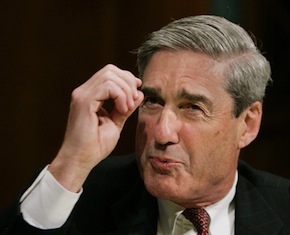In a move likely to have far-reaching effects on US policy, particularly as it relates to relations with Russia, Deputy Attorney General Rod Rosenstein has appointed a special counsel to oversee the federal investigation into the allegations Russia attempted to influence the 2016 US presidential election.
 That special counsel will be former FBI Director Robert Mueller, who resigned a job at a private law firm to take the post. Mueller was initially appointed FBI Director by President George W. Bush in 2001, and held the position into 2013. Mueller’s successor was James Comey, who was fired last week.
That special counsel will be former FBI Director Robert Mueller, who resigned a job at a private law firm to take the post. Mueller was initially appointed FBI Director by President George W. Bush in 2001, and held the position into 2013. Mueller’s successor was James Comey, who was fired last week.
The move caps months of calls for a special counsel to launch an investigation, calls heavily pushed by Democrats who argue that Trump’s election last year was the result of Russian hacking. Some are responding to the move by demanding an even bigger “independent commission” which they claimed would be even more independent.
In practice, however, independent counsels have historically had broad independence in their investigations against presidents, and have historically used that independence to take investigations beyond their initial focus, as with the prosecutors investigating Whitewater during the Clinton Administration ultimately transitioning to the Monica Lewinsky scandal.
Rep. Peter King (R – NY) appeared keenly aware of that possibility, expressing concern that there would be no way to “control” Mueller once he’s appointed. Since such investigations often last many years, Mueller’s presence could, and likely will, dominate much of Trump’s time in office.
The omnipresence of a special counsel related to his Russia contacts is likely to preempt any diplomatic rapprochement with Russia that Trump might consider in the future. Trump has expressed support for improved Russia ties, but has appeared to back off such a notion in recent months at any rate.
There is no specific deadline for a special counsel’s investigation, and generally speaking it ends when the counsel decides it ends. Since the Ethics in Government Act’s expiration in 1999, theoretically an attorney general could fire a special counsel, though the mechanism for doing so is wholly untested, and likely politically impractical.
Deputy Attorney General Rosenstein was in the position to make the appointment because Attorney General Jeff Sessions had already recused himself from the investigation. Rosenstein is a career Justice Department employee, not a political appointee.


